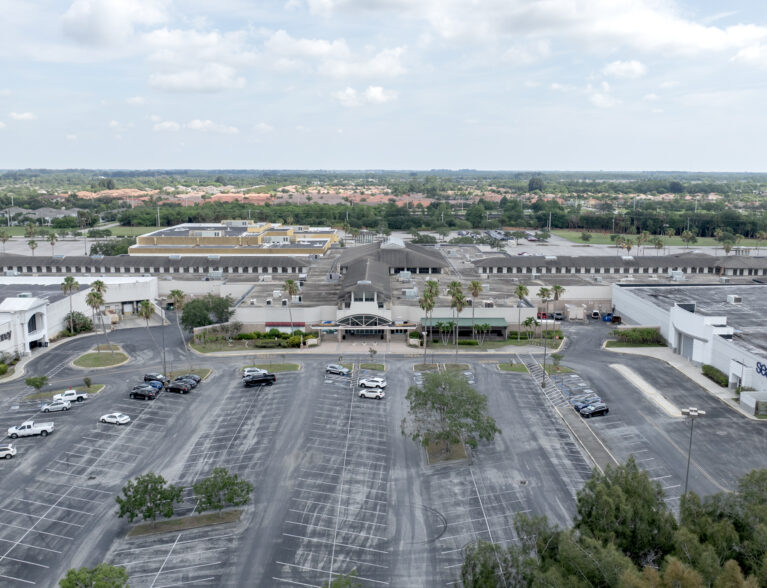
There are few local sights more forlorn than the empty parking lot of the largely deserted Indian River Mall – unless it is the empty retail shops and fast food booths lining the dreary mall corridor and food court inside.
But the Illinois owner of Indian River Commons, the shopping center immediately to the mall’s east, is not ready to give up.
DTS Properties II is betting big that it can turn Indian River Mall’s sad decline around by transforming it into an innovative outdoor shopping and dining destination.
On May 16, DTS purchased the main portion of the Indian River Mall for $14.8 million two months after purchasing the parcel that includes the former Macy’s building, along with property west of the mall, for $4.75 million.
“The plan is to rejuvenate that mall from what it is today, which is basically dead, to a beautiful outdoor shopping center with restaurants and retail and supermarkets and shops,” said Joe Scarfone, owner of ONE Investment group in Pompano, which helped broker the purchase of the building from Kohan Retail Investment Group.
“The tenants who are there, if they want to stay, will be open to the outside. You get a lot more Vitamin D on the outside,” he said. Exactly how it might look, and function, is still under discussion. He hopes to present preliminary artist’s renderings to county planners in about a month, he said.
DTS purchased Indian River Commons, the shopping plaza east of the mall, in 2016 and paid $16.5 million. That plaza is home to Best Buy, Michael’s, and the space formerly occupied by Bed, Bath & Beyond, which is slated to become Total Wine & More.
Presumably, Indian River Mall would follow that open-air theme, but would be configured in the general shape of today’s mall with more amenities than Indian River Commons.
“It’s a long process and things will change along the way. We have to go through a lot of hurdles, but based on some preliminary meetings we have had, everyone is super-excited to bring this dead mall that’s been sitting there and decaying back to life,” Scarfone said.
The central portion of the mall contains around 75 shops, 12 kiosks, a food court, a video arcade, a 24-screen movie theater, and two restaurant spaces.
Thirteen retail spaces are occupied by a church, one by a beauty school, and several others by non-retail businesses. Twenty-five retail shops, three food court spaces, and one restaurant space are currently empty.
The Debartolo Corporation developed the mall in 1996, with JC Penney, Sears, Dillard’s and Burdines as the anchor stores.
Burdines became Macy’s in 2005, and heralded a long string of chain store exits, including the Gap, Disney Store and RJ Gator’s in 2008; Sears in 2019; and Macy’s in 2020. Victoria’s Secret and TGI Friday’s also closed in 2020.
Owners Simon Malls entered into foreclosure on the property in 2014, owing $71 million on both the mall and the Indian River Commons property. It was put up for auction in 2015 and, with no bidders, C-III Capital Partners took ownership in trust for Wells Fargo Bank, the mortgage holder.
Kohan Group purchased the mall in 2017 for $12 million but struggled to attract retailers and restaurants.
Malls across the country have suffered a similar exodus of retail tenants as customers moved to online shopping giants like Amazon and Walmart, Scarfone said. Communities are responding by reimagining shopping centers and malls by reducing large-scale anchors in favor of unique smaller shops and dining and social experiences that can’t be found online, he said.
In the meantime, the mall will continue to be managed by Premier Assets Management, Inc., with business pretty much as usual, Scarfone said.



